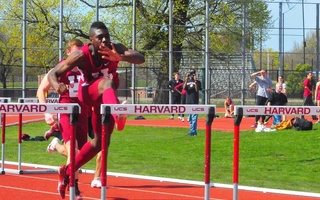Most people are referring to notes and keys when talking about music, but newly-appointed University Professor Carolyn Abbate sometimes thinks about pre-mortem hallucinations with tuberculosis patients and the physiology of voice when lecturing.
Abbate is recognized in her field as a highly original and invigorating lecturer and thinker.
Her appointment as the Paul and Catherine Buttenwieser University Professor will begin on January 1, 2014. University Professorships, the highest honor for faculty, were established in 1935 and are intended for professors involved in multidisciplinary work.
After serving as the Fanny Peabody Professor of Music at Harvard for three years, she became the Christopher H. Browne Distinguished Professor of Music at the University of Pennsylvania until earlier this year, when she returned to Harvard.
Abbate was “literally speechless” when she first found out from President Drew Faust that she was awarded the position.
Abbate specializes in the history of opera and has taught “Topics in Music: 1800-Present” and “Film Music.” Her courses have typically crossed multiple disciplines, ranging from music to Visual and Environmental Studies. She has also worked as a translator.
According to Abbate, she appreciates the diversity of disciplines to which music can be applied.
“Where doesn’t music lead you if you let it?” she said. “Subjects in opera often deal with culturally fraught issues and even with sound technology and neuroscience.”
Particularly fascinating to Abbate was the fact that opera singers portraying tuberculosis patients in the 19th century often sung very loudly, emphasizing the hallucinatory nature of their disease and, in particular, their will to live.
Abbate has also found that the discipline of music history has become broader over time.
“When I started out, music history narrowly focused on musical works,” she said. “Now, we’ve moved into ethnomusicology and science.”
She has been at the forefront of this change and in fact taught a freshman seminar on film music last spring.
Students have commended her teaching style:
“She created an environment open to discussion, and allowed students to carry the conversation in their own direction,” Hayden S. Betts ’16 said. “She always knew more than anybody else about film music from modern to really old material.”
“I find myself rethinking what I want to do in the future because I have radically wide-ranging opportunities,” she said.
She is able to teach in any of Harvard’s schools as part of her new position.
Abbate said she is looking forward to taking advantage of the opportunities she gets by being a university professor.
“All I can think of is being really alert to the responsibilities a university professorship brings. I have to live up to the challenge that there are no barriers,” she said.
Read more in University News
HLS Professor Faces Confirmation Battle for Appeals Court NominationRecommended Articles
-
Group Celebrates Local Folk Music LegaciesIn 1958, a young, soon-to-be Boston University dropout named Joan Baez played her first live show. It was at a venue called Club 47 just outside of Harvard Square, and only eight people were in attendance.
-
Beatable Games, Unbeatable MusicFor years, video game tunes were all I listened to.
-
Record Store Day a Mixed EventCorporate holiday promises fun releases
-
 Men’s, Women’s Track and Field Teams Down Yale in Dual Meet
Men’s, Women’s Track and Field Teams Down Yale in Dual Meet -
Landmark Microtonal Composer Honored at NEC SymposiumMusicians honored Harry Partch’s musical legacy with a three-day tribute
-
 Zoe Keating's Ambitious, Eclectic Journey
Zoe Keating's Ambitious, Eclectic Journey













